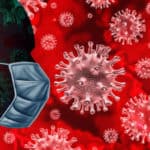Who Will Respond to Hepatitis C Treatment
Of the approximately four million Americans infected with chronic Hepatitis C, only about half will benefit from Hepatitis C’s current standard of therapy – interferon and ribavirin. Considering the enormous health and financial tolls this treatment takes on its recipients, clinicians are finding it increasingly important to identify who will respond to the medications early into the treatment regime. However, a new field on the cutting edge of medical technology may have discovered a way to predict who will respond to standard Hepatitis C therapy before the drugs are even started.
Researchers from the Duke University Clinical Research Institute found a similarity among those with Hepatitis C who are among the 50 percent who do not respond to interferon-ribavirin combination therapy. Presented October 31, 2008 at the annual meeting of the American Association for the Study of Liver Disease, the Duke researchers used proteomics to identify specific proteins that foretold the likelihood of Hepatitis C treatment success. The data for this research was derived from the following:
- Blood samples from 30 patients with Hepatitis C were examined.
- Ten of the samples had genotype I and were cured with the standard therapy.
- Ten of the samples had genotype I and did not respond to standard therapy.
- Ten of the samples had genotype 2 or 3 and were cured with the standard therapy.
With 90 percent accuracy, three clusters of proteins in the blood samples were found to predict who would respond to therapy and who would not. Dubbed a ‘protein signature,’ those with the cluster of proteins indicative of non-responders could be directed towards other treatment approaches. Thus, individuals with this non-responder protein signature could be saved from many months of side-effect ridden and costly treatment with interferon and ribavirin.
The importance of this research is summed up by senior study author Dr. John McHutchison, “Those of us who treat patients with Hepatitis C know that treatment can be very difficult, in terms of side effects, and most patients need to be in therapy for almost a year. When treatment demands this much commitment, it would be nice if we had something to help us – and our patients – decide in advance who is most likely to benefit, and who should try other options.”
Art Moseley, director of the proteomics laboratory in the Duke Institute for Genome Science & Policy gives those who have or treat Hepatitis C even more to look forward to, “We still have to figure out which protein pathways these clusters are associated with. That, in turn, may yield information that could lead to new treatment options or more informed treatment decisions using current therapies.”
Background on Proteomics
The completed human genome published in 2003 contained between 30,000 and 35,000 genes, far fewer than the 100,000 genes predicted by scientists when the project began in the mid-1990s. Those genes contain the recipes for between one million and five million proteins. While the genes that compose the human genome provide the building blocks for who we are, the gene’s proteins directly regulate all of our cell’s functions.
Defined in 1994 by the Australian postdoctoral fellow Marc Wilkins, a proteome includes all the proteins being expressed in a given cell at a given time. Wilkins called the study of the proteome, proteomics. According to Raj K. Puri, M.D., Ph.D., director of the Division of Cellular and Gene Therapies at the FDA’s Center for Biologics Evaluation and Research Proteomics, “Proteomics provides the opportunity for researchers to get a global view of the communications and always-changing events within a cell, instead of focusing on the more static singular gene.”
Researchers are learning that analyzing patterns of proteins, rather than identifying every active protein, may be sufficient for diagnosing disease. However, as the Duke researchers have found, a protein signature can also reveal how a person with Hepatitis C will respond to treatment.
There are many more stages of testing to go before hepatologists around the world use proteomics to screen patients for interferon-ribavirin therapy. However, this innovative application of a relatively new science is already getting people excited. Because of its potential to help physicians and their patients make better informed treatment decisions, testing patients for the non-responder protein signature might become routine when determining who is a candidate for interferon-ribavirin therapy.
References:
http://www.dukehealth.org/HealthLibrary/News/protein_signature_may
_predict_who_responds_to_hepatitis_c_treatment, Protein Signature May Predict Who Responds to Hepatitis C Treatment, Duke Medicine News and Communications, Retrieved November 2, 2008, Duke University Health System, November 1, 2008.
http://www.expasy.ch/proteomics_def.html, What is Proteomics?, Retrieved November 2, 2008, ExPASy, 2008.
http://www.fda.gov/fdac/features/2005/605_proteomics.html, Proteomics: Moving Beyond the Human Genome, Raymond Formanek Jr., Retrieved November 2, 2008, FDA Consumer Magazine, November/December 2005.
http://www.wisegeek.com/what-is-proteomics.htm, What is Proteomics?, J.S. Petersen, Retrieved November 2, 2008, WiseGeek, 2008.







